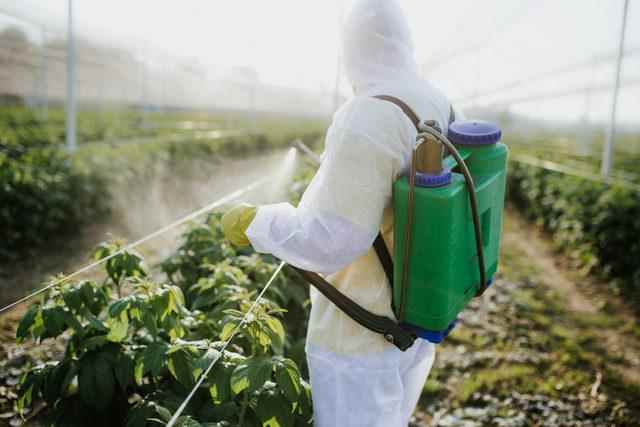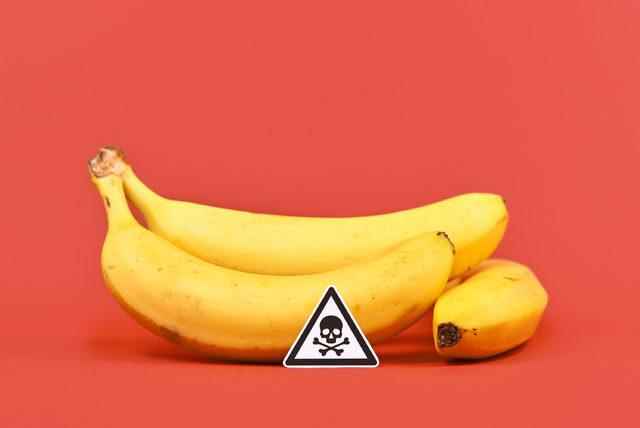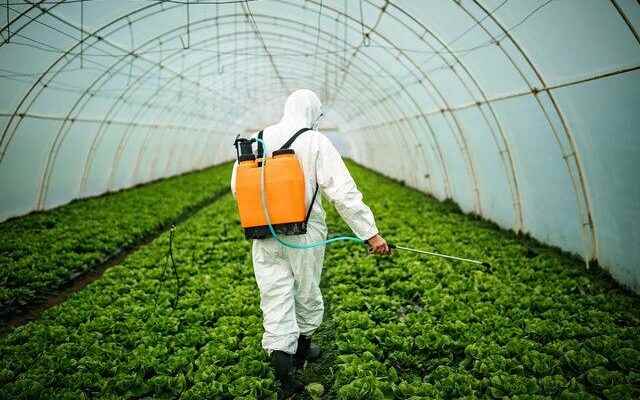The answer to the question of what is a pesticide is a substance or mixtures of substances used to prevent, control or reduce harmful organisms. However, pesticides, which are used simply as “insecticide”, endanger human life due to incorrect and unconscious use.
The term “pesticides” is often associated in people’s minds with products used in agriculture to control weeds or protect crops from insects and mold. However, the term includes different types of products in a professional context. Pesticides are also used in the maintenance of roads, airports, railways, parks, public gardens, cemeteries, pesticides and in the fight against domestic parasites.
There are many ways to be exposed to pesticides. They are ubiquitous and domestic use results in general exposure to these products.
6 HAZARDS OF PESTICIDES
Pesticides should be used carefully and in moderation. Recommendations and precautions for use should be carefully considered. Otherwise, they may cause various damages.
Here are 6 proven dangers of pesticides.
INCREASES THE RISK OF PARKINSON’S DISEASE
A study published in the journal Neurology reported a link between heptachlor, a pesticide found in milk and dairy products bottles, and the development of Parkinson’s disease in men who consumed these products contaminated with them in the 1980s. The manufacture and sale of heptachlor, which was once used to kill insects in homes and in corn crops, is banned.

Several different studies also show that organochlorine pesticides such as heptachlor play a role in the development of Parkinson’s disease. Postmortem studies have found organic chlorine compounds in the brain tissue of people with Parkinson’s disease.
INFLUENCES CHILD DEVELOPMENT
According to studies, chlorpyrifos, an pesticide used in agriculture, can cause physical and mental retardation in young children. A study of 266 children living in New York evaluated the impact of exposure to this pesticide on children. It was observed that both psychomotor development and mental development were impaired in children exposed to pesticides at high rates.

Chlorpyrifos is still widely used worldwide for agricultural purposes. There are many studies showing the effects of chlorpyrifos on the brain and it is especially dangerous for pregnant women and young children.
INCREASES THE RISK OF DIABETES
According to a 2017 review of the health effects of pesticides, there is a growing body of evidence linking pesticides with diabetes.
In a study comparing the blood sugar levels of farmers who used pesticides with those of non-farmers, 61 percent of farmers who used pesticides had abnormal blood glucose levels, compared to only 7.9 percent of those who did not.
In the United States, a study that examined the links between diabetes and exposure to pesticides in more than 13,000 farmer wives (who helped their wives mix or spray pesticides) found that their risk of diabetes was 2 times higher.
TRIGGERS DEMENTIA
Farmers exposed to pesticides for a long time have a higher risk of dementia. In a study evaluating the effect of pesticide exposure on brain function, a series of nine tests were performed that measured participants’ particular memory, verbal expression, and reaction time.
Over the 6-year study, 20 percent of the participants were never exposed to pesticides, more than 50 percent were directly exposed, and others were indirectly exposed. It turned out that participants exposed to pesticides performed worse on tests than others.
CAUSES CANCER
Research links exposure to pesticides and some blood cancers. Researchers followed 144 farmers exposed to pesticides for 5 years. They took into account that risk factors are not the same for all farmers.
It is known that there is a mutation that is known to be the first step towards cancerization of lymphocyte cells. This genetic mutation leads to overproduction of a gene responsible for the synthesis of a protein that inhibits cell death. Therefore, cells that are normally doomed to die survive.
In the general population, this abnormality is found in less than one cell per million. However, farmers exposed to pesticides developed 100 to 1000 times more abnormal cells in their genomes, and these cells could develop into lymphoma.
Also, different studies show that children exposed to pesticides at home have an increased risk of developing leukemia or lymphoma. This conclusion comes from an analysis of 16 studies published over 10 years.
The two types of blood cancer, leukemia and lymphoma, are the most common cancers in children. The link between chronic, low-level pesticide exposure in childhood and the risk of childhood cancer has been demonstrated by studies.
MAY BE CONNECTED TO MY AUTISM
Studies show that pregnant women who live near pesticide-heavy areas, such as fields and golf courses, are at higher risk of having children with autism.
A US study of 970 children aged 2 to 5 years (486 with a confirmed diagnosis of autism, 168 with another delayed cognitive development, and 316 with normal development) examined the addresses mothers had before and during their pregnancy.
Most of the women in the study did not live near pesticide application areas during their pregnancy, but about a third lived within 1.5 km of where the chemicals were spreading. It was concluded that exposure to pesticides during pregnancy increased the risk of autism by 60 percent. The risk turned out to be much higher in the second and third trimesters of pregnancy. The risk of autism and developmental delay increased between 70 percent and 130 percent in children whose mothers lived near pesticide applications just before conception or in the third trimester.
TIPS FOR AVOIDING PESTICIDES
Consume organic products whenever possible. Organic fruits and vegetables contain more antioxidants and less toxins.

Wash your fruits and vegetables with plenty of water before eating them. You can also wash it in water mixed with a little salt or white vinegar. With a good washing, up to 75-80 percent of pesticide residues can be removed. You can also use baking soda. Put 3 tablespoons of baking soda in 1 liter of water and soak your fruits and vegetables in this water. You can also use lemon juice or salt, or even combine salt and lemon to soak your products in this water.
If the fruit or vegetable has a thick skin, such as apples, cucumbers and potatoes, you can of course peel your fruits and vegetables to remove the pesticides they contain. But you deprive yourself of the peels, a source of nutrients that are beneficial to your body.
